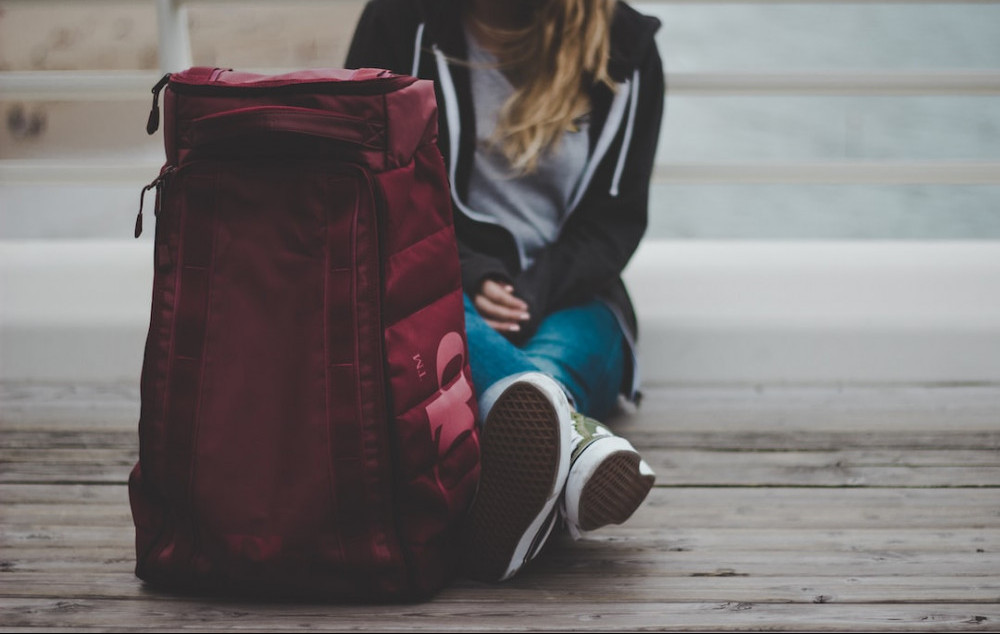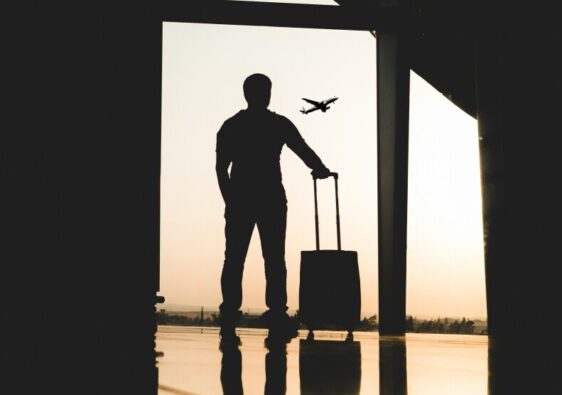
Tips for traveling with Medication
Traveling with prescription drugs internationally is not as easy as throwing them in your bag and tossing them in your car as when you are taking a local road trip. There may be different regulations for traveling with medication if you are traveling internationally. Many travelers have intermittent or chronic health conditions that require medication. Some medication is over the counter and others are prescription. As prescription medication is crucial and customized to the individual, safely traveling with them is a very important consideration in making your travel plans. Over the counter medications can sometimes be obtained in your travel destination country during your stay. In the U.S., the U.S. State Department is a good resource along with the embassy information pages of the country you plan to travel to.

Air Travel with Prescription Medication
According to the TSA(Transportation Security Administration), you can bring your prescription medications in pill or solid form in unlimited amounts as long as it is screened in labeled containers. TSA also states, “You may bring medically necessary liquids, medications and creams in excess of 3.4 ounces or 100 milliliters in your carry-on bag. Remove them from your carry-on bag to be screened separately from the rest of your belongings.” You should travel with your medication in your carry-on even though you can place them in checked baggage. Traveling with them in carry-on assures you will not be separated accidentally from your needed prescriptions and for immediate access.
Below you will find safe ways to travel with prescription drugs. This article covers air travel. Here are tips you need follow to stay within the law:
-Check with your airline in advance what the rules are to get through security checkpoints and board the aircraft without issue. You can find this information on the airline’s website.
-Review the airline’s policy to make sure your prescriptions are allowed.
-Make sure sure your medications are clearly labeled with original labels. Although it is not required by TSA, it will save you time and questions during travel and at your destination. Your name should be on label also.

Packing Prescription Medicine for Travel
-Before travel, you can ask for your physician for a letter that explains your medical conditions and your prescriptions. You can keep this letter in your carry-on bag or with your important documents along with your passport. You can show letter is there is any question about your prescriptions or medical conditions.
-If you have a chronic condition that you wear a medical alert bracelet or necklace for, be sure it states your medical conditions and medicines. This way if an emergency occurs with you or your prescriptions, quick access to needed information is available.
-Pack your prescriptions in a plastic ziplock type bag and place inside your carry-on so they will be easily seen at one glance by screeners and you don’t have to find them individually. This also helps if you have to remove them from your bag. You can lift them up for inspection or place them in a bin easily without getting the bottles soiled or broken.

TSA Tips for Flying with Prescription Drugs
Here is an excerpt below from the TSA website. The website offers information for traveling with prescription medications: You can find the full article here https://www.tsa.gov/travel/special-procedures
Medications in pill or other solid form must undergo security screening. It is recommended that medication be clearly labeled to facilitate the screening process. Check with state laws regarding prescription medication labels.You are responsible for displaying, handling, and repacking the medication when screening is required. Medication can undergo a visual or X-ray screening and may be tested for traces of explosives.
Inform the TSA OfficerInform the TSA officer that you have medically necessary liquids and/or medications and separate them from other belongings before screening begins. Also declare accessories associated with your liquid medication such as freezer packs, IV bags, pumps and syringes. Labeling these items can help facilitate the screening process. 3-1-1 Liquids Rule ExemptionTSA allows larger amounts of medically necessary liquids, gels, and aerosols in reasonable quantities for your trip, but you must declare them to TSA officers at the checkpoint for inspection. Remove medically necessary items from your carry-on bag. These items will be screened separately from your other belongings. You are not required to place your medically necessary liquid, gel, or aerosol in a plastic zip-top bag. If a medically necessary liquid, gel, or aerosol alarms during the screening process, it may require additional screening and may not be allowed. The 3-1-1 liquids rule exemption allows certain items to be carried in the cabin of the aircraft when the item is declared and it is: 1 Required during your flight and/or at your travel destination; 2 Not available at the airport in the sterile area (after the screening checkpoint) and/or; 3 Not available at your travel destination. Common examples of medically necessary liquids, gels, and aerosols include but are not limited to: • Prescription liquids, creams, and gels; • Breast milk, infant formula, baby/toddler food (to include puree pouches), and toddler drinks; • Ice, gel, and freezer packs used to cool breast milk, infant formula, and or other medically necessary items; • Hand Sanitizer, less than or equal to 3.4oz/100 ml allowed per passenger. Common examples of liquids, gels, and aerosols that are NOT medically necessary onboard or are usually available at a destination, and are subject to the 3-1-1 rule, include but are not limited to: • Water, juice, soda, and other beverages, except as necessary for certain health conditions such as diabetes. • Partially solid food items such as spreads, peanut butter, sauces, jams, and jellies. • Sunscreen lotion AccessoriesIce packs, freezer packs, gel packs, and other accessories may be presented at the screening checkpoint in a frozen or partially-frozen state to keep medically necessary items cool. All items, including supplies associated with medically necessary liquids such as IV bags, pumps, and syringes must be screened before they will be permitted into the secure area of the airport. ScreeningTSA officers may test liquids, gels or aerosols for explosives or concealed prohibited items. If officers are unable to use X-ray to clear these items, they may ask to open the container and transfer the content to a separate empty container or dispose of a small quantity of the content, if feasible. Inform the TSA officer if you do not want your liquid medication to be screened by X-ray or opened. Additional steps will be taken to clear the liquid and you will undergo additional screening procedures to include a pat-down and screening of other carry-on property. |

Traveling with Prescription Medication Overseas
Finally, before traveling with medication overseas understand the laws for bringing prescriptions and medications to your destination. The United Arab Emirates, Singapore, and Japan are countries with stricter regulations that other countries. It is illegal to bring into Japan some common allergy and sinus medications used in the U.S. such as Sudafed and Vicks inhalers. Tylenol from outside of Japan is illegal to bring with you but you may purchase medication similar to Tylenol within Japan. A prescription medication such as Adderall, is not allowed in Japan because it is an amphetamine. No amphetamine drugs are approved in Japan for medical use. You will have to get the correct documentation and permission for Adderall in Korea.
Singapore does not allow medicinal chewing gums (Nicotine gum). The United Arab Emirates also has a long list of prohibited substances. You may be arrested if you bring in any of these prohibited substances or medications.
Do Your Research
To be safe and legal, do your research before your trip. Get documentation of your medical conditions and medications well before it is time to embark on your journey. Pack your medications with labels and in original containers to avoid delays. Check with the U.S. State Department and the travel advisory section of all the embassies of countries you travel through as well as your final destinations. If you are a traveler from countries other than the U.S., check with your countries’s travel authorities and the embassies of countries you plan to visit during your international travels.
Do you take prescription medication? What measures did you take to insure that you were traveling safely and within the laws and regulations of countries you traveled to? Share your adventures with medication travel in the comment section.
Happy travels!
Go here to book your next travel dream





Thank you for emphasizing the need to check with your airlines for their boarding rules. I saw the need for this check on my first travel to Australia. I had to drop many of my medications and got to Australia sick. I needed to start all over again with a new treatment. I had my wife read through the airline guidelines for my return.
Hi Parameter,
Sorry to hear that you encountered the difficulties with your meds and that you had to drop them. Medication travel instructions should be emphasized as part of customer service information for all commercial transportation but unfortunately it is not and travelers will end up suffering ill effects. I’m glad you are aware of what you need to do now for your future travels. Take care and best wishes for great travels in the future.
Thank you for sharing these invaluable tips for traveling with medication. As someone who has dealt with a chronic health condition for years, I can attest to the importance of planning and preparation when it comes to carrying prescription drugs during travels.
One aspect that stood out to me is the recommendation to carry a letter from your physician explaining your medical condition and prescriptions. This document has proven to be a lifesaver on numerous occasions, as it not only provides clarity to airport security but also serves as a quick reference in case of emergencies. It’s a small yet powerful tool that offers peace of mind and ensures smooth travels.
Additionally, the emphasis on keeping medications in their original labeled containers is crucial. While it may not be a mandatory requirement by the TSA, it has personally saved me from unnecessary questions and delays. It’s worth the extra effort to organize medications in a plastic ziplock bag within your carry-on, allowing for easy inspection without risking damage to the bottles.
Furthermore, the information you shared about specific countries’ regulations is extremely valuable. It’s essential to be aware of these restrictions to avoid any legal complications. Conducting thorough research, reaching out to the U.S. State Department and relevant embassies, and obtaining the necessary documentation well in advance are all steps I have taken to ensure compliance with foreign regulations.
Traveling with prescription medication can be a daunting task, but with proper preparation, it becomes manageable. By following these tips, I have successfully navigated various international trips without any issues. It’s important for all travelers to be responsible and informed, respecting the laws and regulations of the countries they visit.
Once again, thank you for shedding light on this crucial topic and offering such comprehensive advice. Your insights will undoubtedly help countless individuals travel safely and with confidence. Wishing everyone smooth travels and memorable adventures.
Cheers
M.T. Wolf
Thanks Mike for your comments on my article. My goal is to provide useful information for travelers so they will have smooth travels and great memories from their trips. I’m glad you found the information about different country regs helpful, too. Best wishes for great travels to you.
Great article on traveling with prescription medications! It covers important aspects like documentation, organizing meds, and destination regulations. Here are some discussion points: Guidelines for controlled substances? Navigating strict drug laws in different countries? Managing packaging for various meds? Precautions for long-term travelers or chronic conditions? Challenges with refrigerated medications? Backup plans for lost or stolen prescriptions? Excited to hear from the writer and readers on these topics!
But one that makes me most curious is, are any alternative methods for travelers to access their prescriptions in case of loss or theft? What steps can they take to ensure they have a backup plan, especially when traveling internationally?
Thanks, Dawayne for reading my article and you asked a very great question. I am going to write an article about the importance of getting travel insurance for problems like losing your meds or needing info about medical services abroad, in the future.You can contact the assistance service company in your travel insurance policy to get your prescriptions replaced. They will give you advice on the best ways to proceed. If you don’t have travel insurance, you can contact your embassy or consulate in that country. There are two organizations also that can help:
International Association for Medical Assistance to travelers(IAMAT) -Provides travel health advice and works with an international network of physicians and clinics.Website has a directory of fully licensed, English-speaking physicians in 350 cities across 90 countries. Membership is on a donation basis.
MediAlert foundation’s TravelPlus– Provides medical identification accessories and has a travel assistance program locating physicians and, language translation. Has a membership program.
It is a really great idea to put all your meds in one zip lock bag for easy access to everything as well as being able to produce the whole lot to customs if necessary. Thanks for this. I am thinking of going abroad for the first time next year and I wouldn’t have even thought about this and maybe got into trouble at customs. Now I have tons of advice to follow in this article.
Thanks for your comments. I am glad this article was helpful. Best wishes for safe and fun trip abroad.
This is a very informative and interesting article Delois on a subject that I had never really considered before but it is obviously a good idea to have a gameplay for how you are going to travel with your medication when you may be out of the country or at least away from home and don’t want to take the chance of having them confiscated for improper handling.
It makes sense that the airlines would require the typical labeled containers that medicines are most often dispensed in but this makes me wonder if certain precautions should be taken when driving with them in the car?
Thanks for reading my article. You should be fine with meds in the car when you travel overseas as long as you have proper documentation and they are labeled. If you go through customs and immigration at the airport of your destination with no problem, you should have none while traveling inside the country you visit.
I had some issues with prescribed medicines before, this was a few years after 9/11, where one couldn’t take any liquids in a handbag, not even a nose spray. I am glad that things got easier now these days, not as strict anymore and some more liquid medicins can be carried in a plastic ziplock type bag and place inside my carry-on, this is good advise thank you!
Thanks Lizzy for your comments. I’m glad things are better now for travelers with liquid meds as many people have difficulties with swallowing tablets and pills and prescription meds are a necessity for them.
As a person in their 60s (I don’t consider myself elderly just yet) this is a highly relevant topic. I do take a few meds and do travel a bit. So I am always thinking about the best way to manage meditation when I travel. I like that you offer travel tips because, as you said, there are lots of regulations you must consider. Whether to put meds in a carry-on or check it is always a concern I have.
How I package my meds is also a consideration. Should meds be easily visible or concealed? And I wonder if the transport of certain kinds of meds might be considered illegal in some countries.
So your website is very helpful and relevant.
Thank you.
I am glad the information in this article was helpful to you, Bob. My goal is to share info that can help travelers make effective plans and they can travel well. Thanks for your comments.
To be honest I never thought that there are specific rules and laws regarding traveling with prescription medication. I do understand that these are necessary but these are not very clear and definitely most people do not know about them. I have traveled a lot and this is the first time this comes to my attention. I think travel companies should point this out much more than what they do now. This will save a lot of people from some unpleasant surprises.
Thanks for commenting on this article. Yes, you are right. I think travel companies should make their clients aware of things to consider about traveling with medications. This is one of the reasons for my website, to share with travelers valuable tips and information and provide the best service as a travel advisor. Best regards.
Travelling with prescription medications can be a daunting task, but with the right knowledge and preparation, it can be a smooth and stress-free experience. “How to Travel with Prescription Meds” provides an invaluable resource for individuals who rely on medications to maintain their health while on the move.
This informative article offers practical advice on various aspects of travelling with prescription medications. From understanding legal requirements and documentation to ensuring safe storage and transport, the author provides step-by-step guidance that helps readers navigate potential challenges effectively.
Thanks so much Demi for reading my post. I am glad it was helpful. All the best.
I came across this article on traveling with prescription medications, and as someone who relies on essential medications, I found it to be an invaluable resource. You have provided a comprehensive guide that offers practical advice and important considerations for travelers who need to bring their prescription medications along.
One of the aspects that impressed me about this article is the emphasis on proper planning and preparation. The author highlights the importance of consulting healthcare professionals and obtaining the necessary documentation and prescriptions prior to traveling. This not only ensures a smooth journey but also helps avoid any potential complications or legal issues.
this article serves as a comprehensive and informative guide for anyone who needs to travel with prescription medications. The author’s attention to detail, practical advice, and emphasis on proper planning make it an essential resource. By following the suggestions and guidelines provided in this article, travelers can ensure a safe and stress-free journey while managing their necessary medications effectively.
Thanks Pasindu Dimanka for commenting on my article about traveling with medications. I am glad you found it informative. I hope to reach travelers with useful information from my website. Best regards.